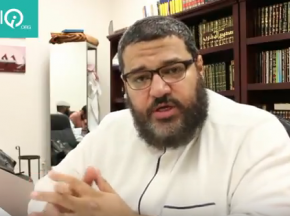content of level
A woman refusing intimacy with her husband
A woman refusing intimacy with her husband.
Having more than one Wife
Having more than one Wife.
The children of a revert Muslim
The children of a revert Muslim.
The duties of a married daughter
The duties of a married daughter.
Using contraception
Using contraception.
The Ideal Muslim Husband
The Ideal Muslim Husband.
The Muslim Family
The model Muslim family.
Ruling on marriage When her mother opposes for her marriage
Ruling on marriage When her mother opposes for her marriage.
Relationship between husband and wife
Relationship between husband and wife.
Applying perfume that has alcohol and praying with it
Applying perfume that has alcohol and praying with it.
Why are there two Athans for Jumu'ah (Friday)?
Why are there two Athans for Jumu'ah (Friday)?
Reciting the Qur'an for a Dying Person
Reciting the Qur'an for a Dying Person.
Making dua or dhikr in the heart or mind, is moving lips a must?
Making dua or dhikr in the heart or mind, is moving lips a must?
wiping over socks
I wiped over my shoes & later took them off, can I wipe over my socks afterwards?
Can I Pray Sunnah Prayer (Tahiyatul Masjid) Just Before Maghrib?
The Prophet (PBUH) has mentioned the three times in a day where it is forbidden to pray. What happens when we enter a masjid and want to pray tahiyatul masjid a few minutes before maghrib?
How Much Zakat Do I Give On My Jewelry?
There is a debate on giving zakat on one’s gold and silver, and on gems and stones. What are the opinions? What are the requirements?
How Can One Perform The 4 Rak'ahs Sunnah Before Dhur Prayer?
Each prayer has a sunnah prayer attached to it. We know that Dhur prayer has 4 raka’hs sunnah prior. How should these 4 rak’ahs be performed?
Can Someone Sit And Pray While On The Plane?
What happens if we are on a plane during the time for prayer? Can we pray while sitting on the plane?
What Defines Obedience To The Husband?
What defines the obedience of a wife to her husband? What does Islam say about obedience? What are the conditions and rulings surrounding this?
What Causes Divorce? Shaytaan Or Faulty Marriages?
When a marriage ends in divorce, is it purely the work of Shaytaan? Or could it be the result of a bad relationship between the husband and wife?
















